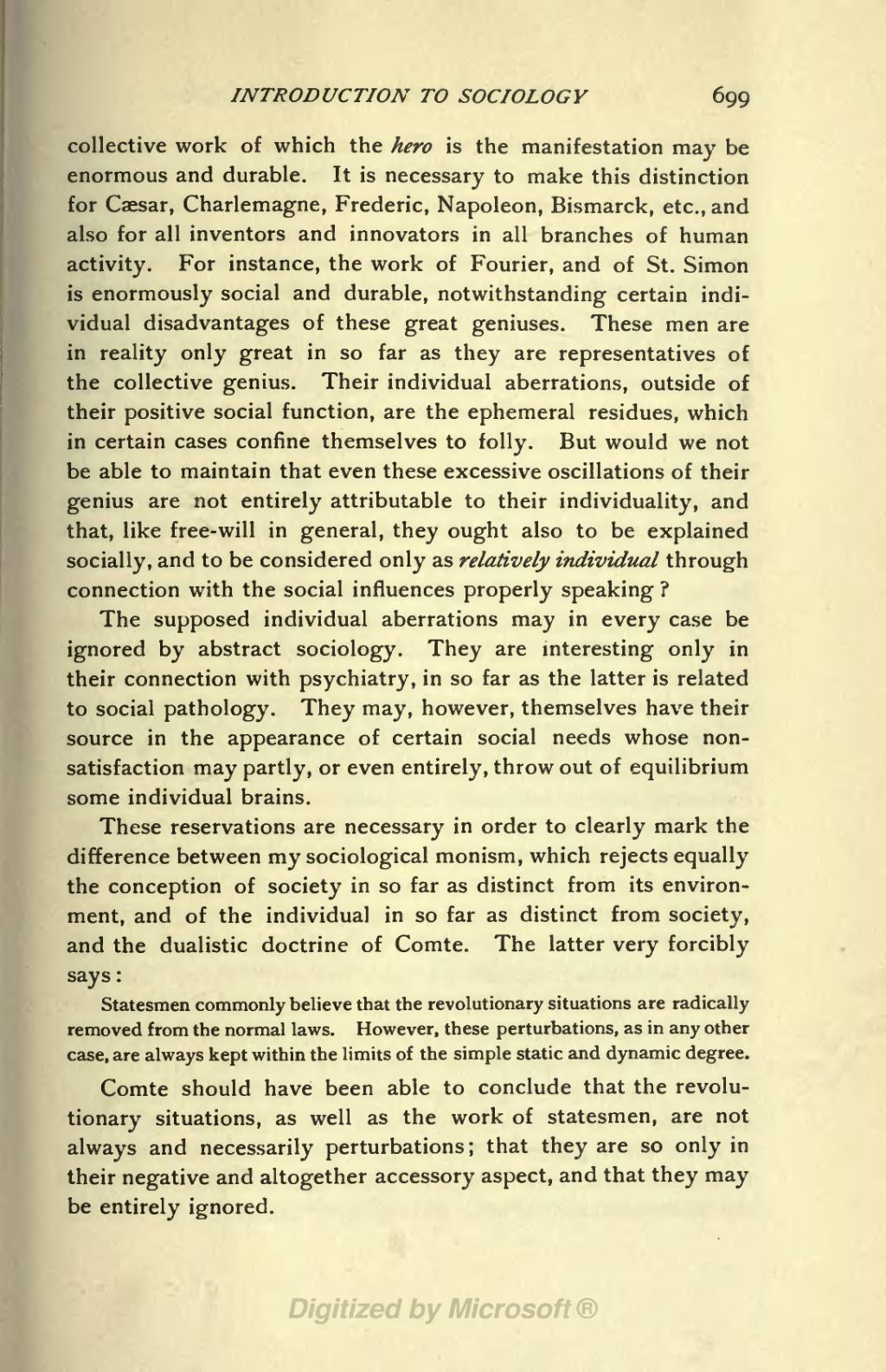INTRODUCTION TO SOCIOLOGY 699
collective work of which the hero is the manifestation may be enormous and durable. It is necessary to make this distinction for Caesar, Charlemagne, Frederic, Napoleon, Bismarck, etc., and also for all inventors and innovators in all branches of human activity. For instance, the work of Fourier, and of St. Simon is enormously social and durable, notwithstanding certain indi- vidual disadvantages of these great geniuses. These men are in reality only great in so far as they are representatives of the collective genius. Their individual aberrations, outside of their positive social function, are the ephemeral residues, which in certain cases confine themselves to folly. But would we not be able to maintain that even these excessive oscillations of their genius are not entirely attributable to their individuality, and that, like free-will in general, they ought also to be explained socially, and to be considered only as relatively individual through connection with the social influences properly speaking ?
The supposed individual aberrations may in every case be ignored by abstract sociology. They are interesting only in their connection with psychiatry, in so far as the latter is related to social pathology. They may, however, themselves have their source in the appearance of certain social needs whose non- satisfaction may partly, or even entirely, throw out of equilibrium some individual brains.
These reservations are necessary in order to clearly mark the difference between my sociological monism, which rejects equally the conception of society in so far as distinct from its environ- ment, and of the individual in so far as distinct from society, and the dualistic doctrine of Comte. The latter very forcibly says :
Statesmen commonly believe that the revolutionary situations are radically removed from the normal laws. However, these perturbations, as in any other case, are always kept within the limits of the simple static and dynamic degree.
Comte should have been able to conclude that the revolu- tionary situations, as well as the work of statesmen, are not always and necessarily perturbations ; that they are so only in their negative and altogether accessory aspect, and that they may be entirely ignored.
